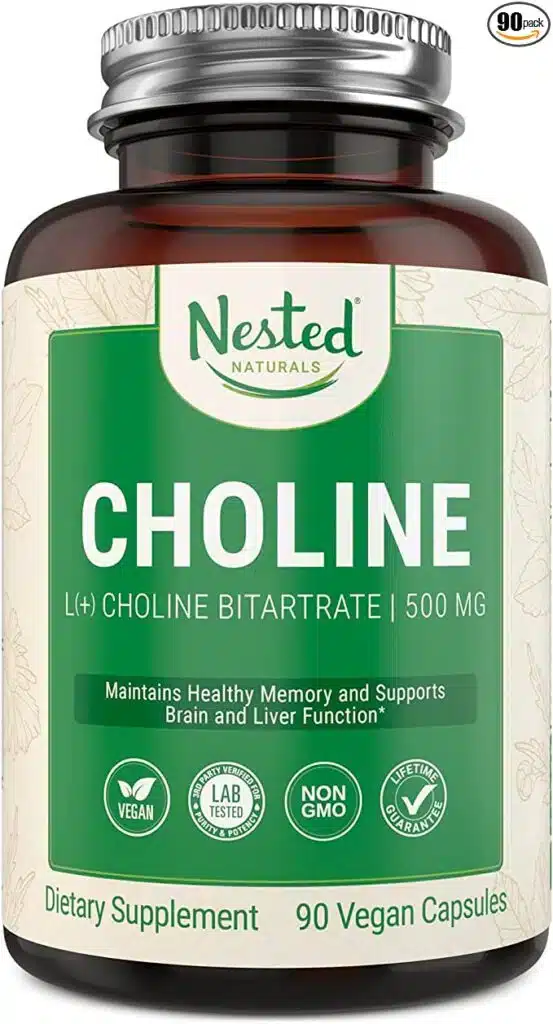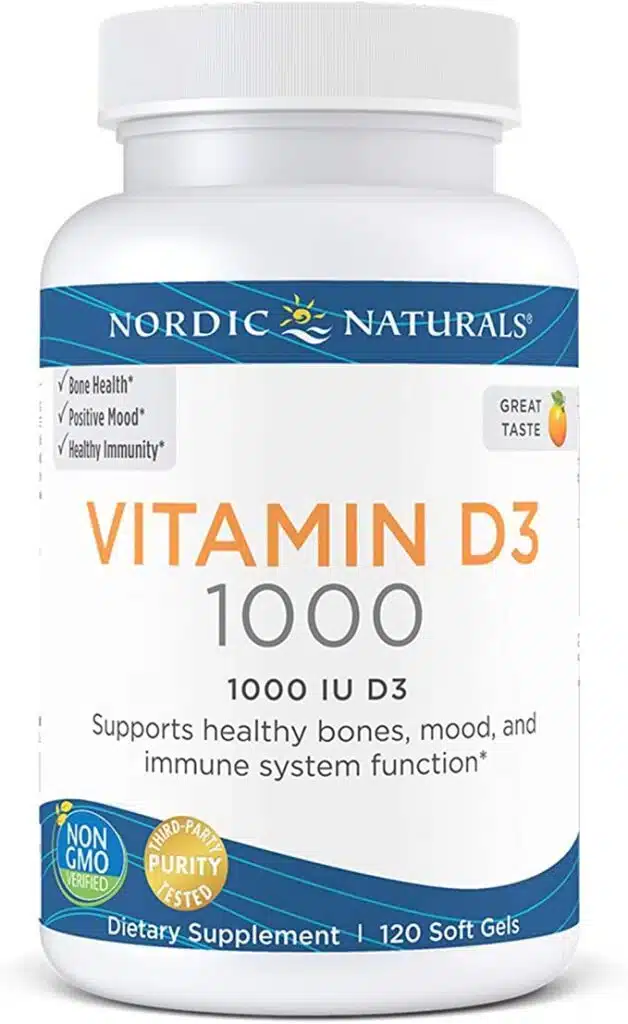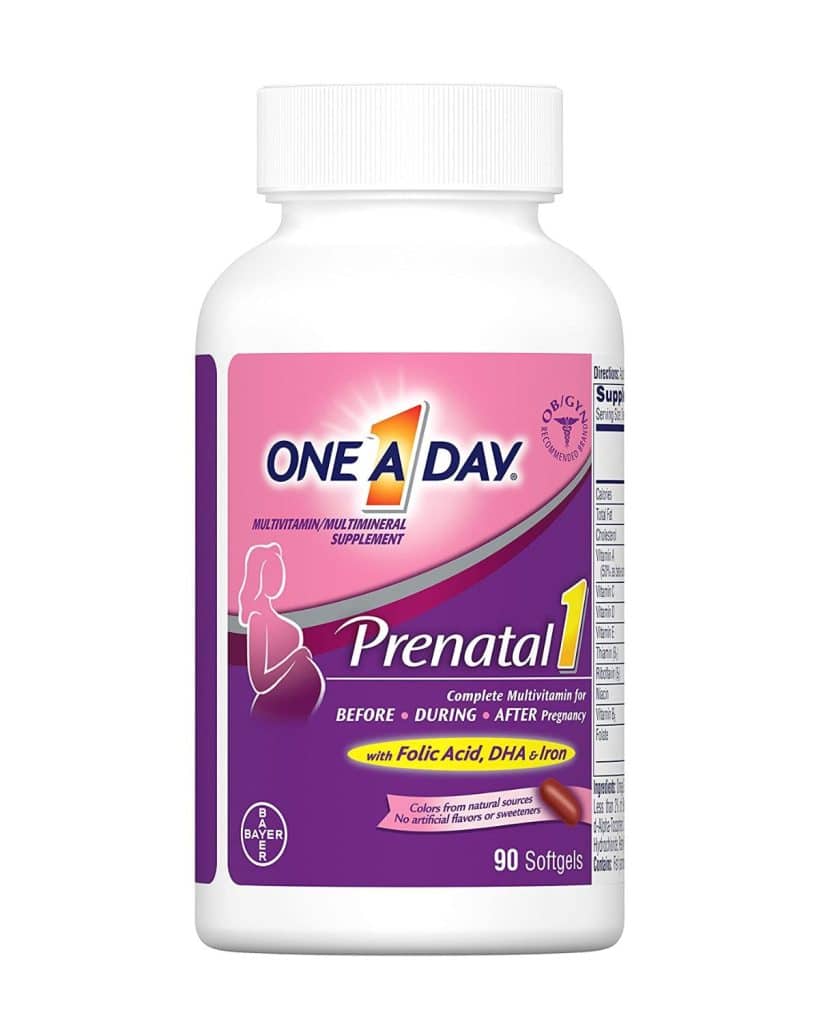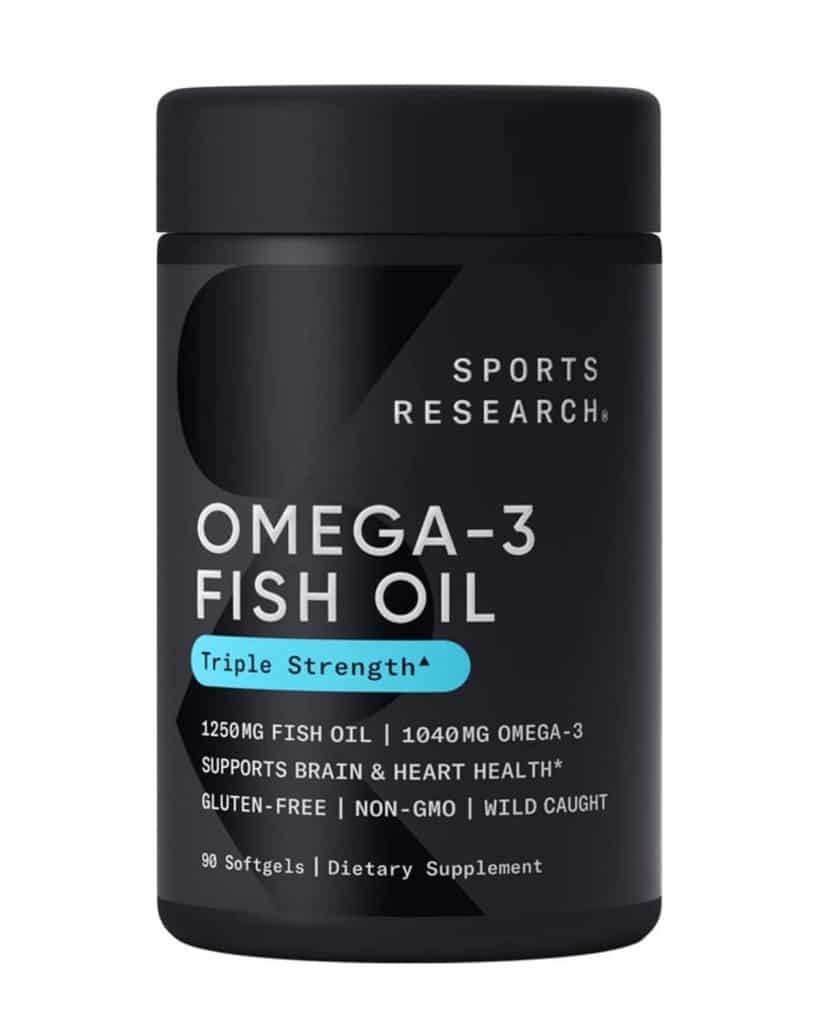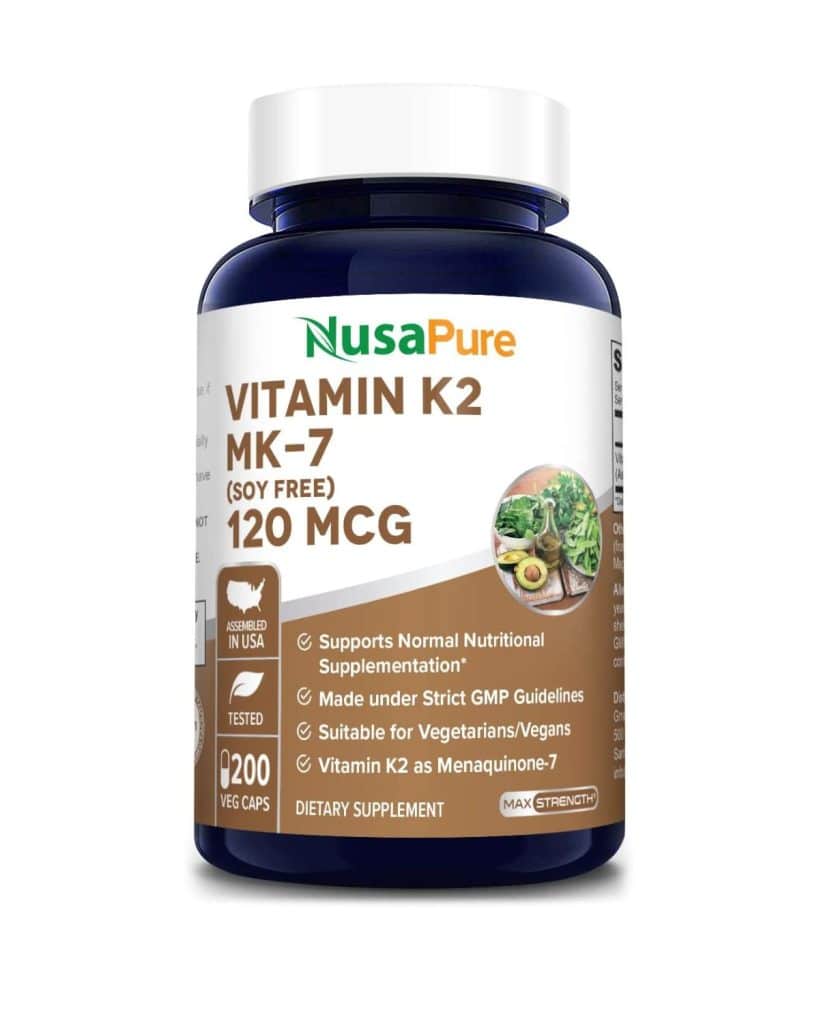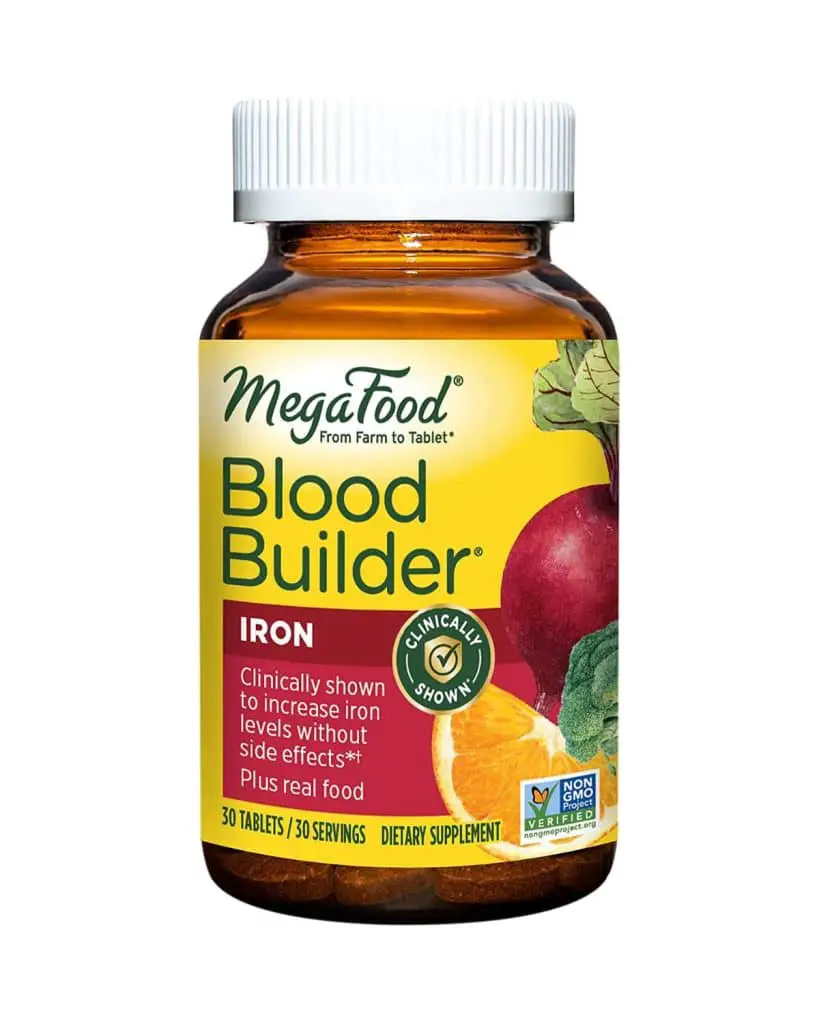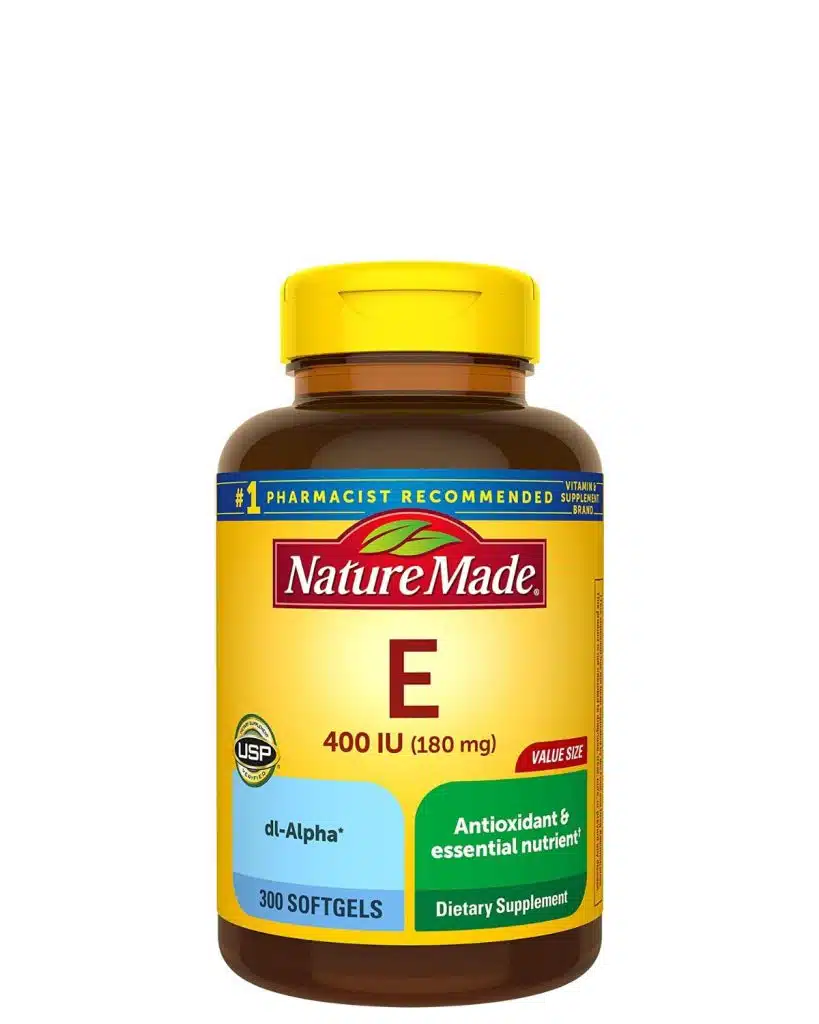This post will review the best pregnancy supplements to get the most out of your pregnancy!
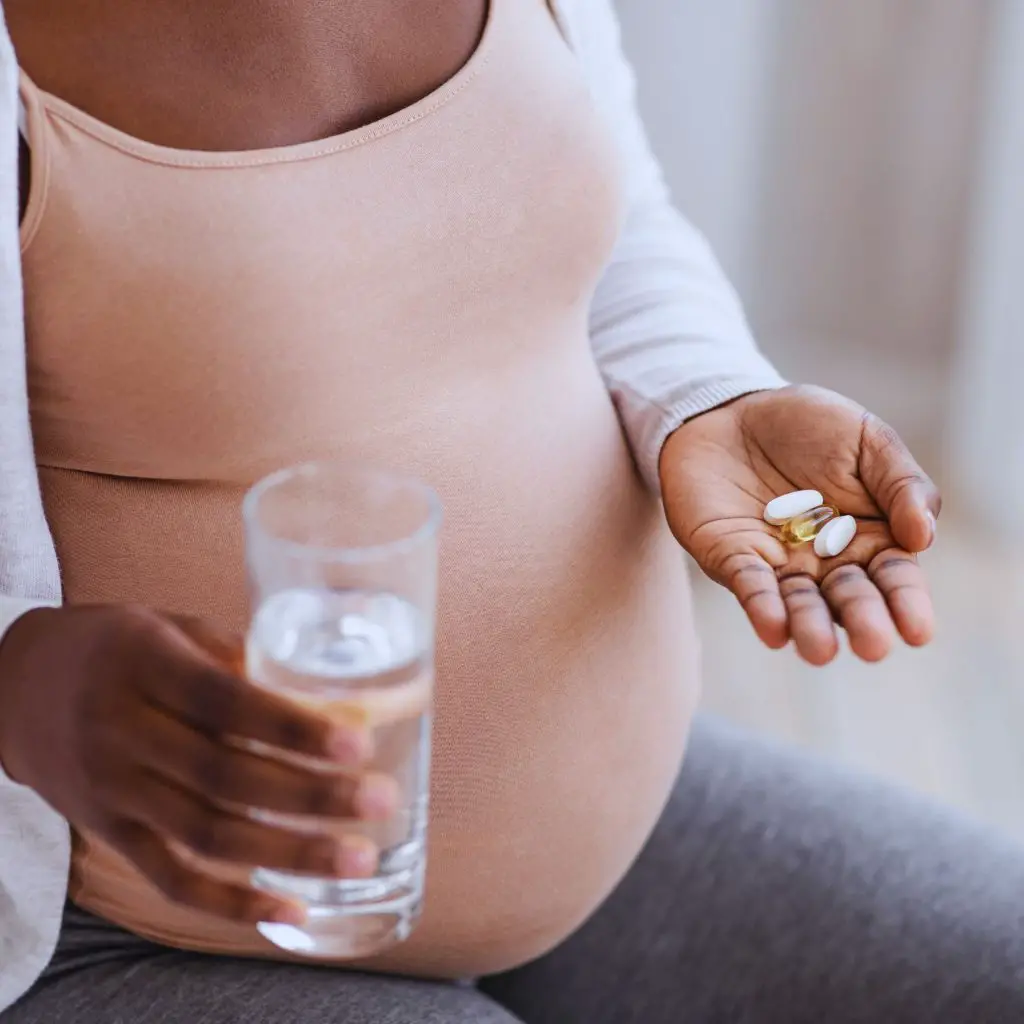
For more helpful and fun content, follow me on Pinterest!
Pregnancy supplements are crucial for a woman’s health, and proper nutrition is essential for both the mother and the developing fetus.
Getting the right pregnancy supplements that offer adequate vitamins and minerals can help support the growth and development of the baby, as well as help the mother maintain her health and well-being.
Vitamins and minerals play several vital roles in the body, including helping to build and repair tissues, supporting immune function, and aiding in the metabolism of nutrients.
During pregnancy, it’s imperative to get enough of certain nutrients, such as folic acid, iron, and calcium, as they are vital for the health and development of the baby.
While it’s possible to get many of the vitamins and minerals a woman needs during pregnancy through a healthy, balanced diet, some women may need to take supplements to ensure that they get enough of certain nutrients.
Pregnancy supplements are a great way to ensure you and your baby get the proper nutrients you need to thrive during your pregnancy.
If you are wondering:
“What vitamins should I take pregnant?”
I got you!
This post lists the best pregnancy supplements.
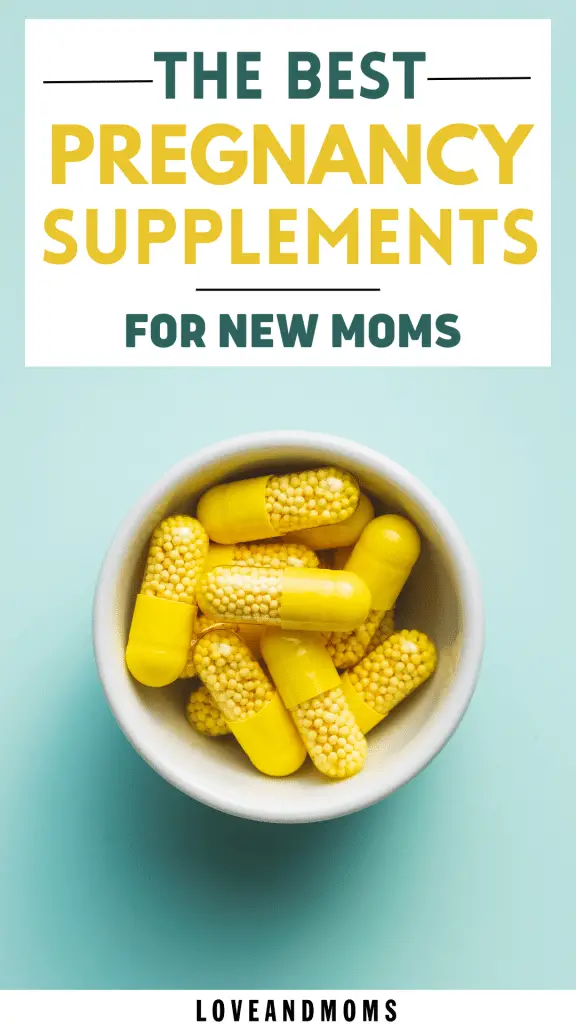
Pregnancy Supplements
From Choline to Vitamin B-12, these are the best pregnancy supplements I have taken and have proven beneficial for pregnancy and baby health.
*Always consult your doctor before taking any supplements, pregnant or not.
1. Choline
Prenatal choline is an essential nutrient necessary for several physiological functions.
During pregnancy, choline plays several vital roles, including:
Supporting fetal brain development: Choline is an essential building block for the brain, and research has shown that getting enough choline during pregnancy can help support fetal brain development.
Promoting healthy placental function: Choline synthesizes phospholipids, essential components of the placenta. Adequate intake of choline during pregnancy may help support healthy placental function.
Reducing the risk of birth defects: Some research has suggested that getting enough choline during pregnancy may help reduce the risk of certain birth defects, such as neural tube defects.
Promoting healthy fetal growth: Choline synthesizes DNA and RNA, which is essential for fetal growth and development. Adequate choline intake during pregnancy may help support healthy fetal growth.
Supporting maternal health: Choline is crucial for the mother’s health during pregnancy. It may help support liver function, reduce inflammation, and promote healthy blood pressure.
It’s important to note that choline needs to increase during pregnancy, and women need to get enough of this nutrient to support the health of both the mother and the developing fetus.
The recommended daily intake of choline during pregnancy is 450 mg.
Food with choline, such as eggs, milk, and meat, is a great way to meet your daily choline intake.
Or, you can use a prenatal vitamin with choline; however, I have yet to find prenatal vitamins with choline that have a sufficient daily amount within them.
Most prenatal vitamins with choline have less than 100mg of Choline per serving, so I bought a separate Choline supplement.
I used Nested Naturals Choline, and my daughter came out healthy as a horse, so no complaints!
Although there have been times when I felt she was too smart for her good, it’s worth having a smart kid!
Other Choline Supplements I Recommend:
- Solgar Choline Inositol 500mg. I use this guy to this day.
2. Vitamin D
Vitamin D is an essential nutrient that plays several vital roles in the body, including supporting bone health and immune function.
During pregnancy, vitamin D is essential for both the mother and the developing fetus, and getting enough of this nutrient may have several benefits, including:
Supporting fetal bone development: Vitamin D is vital for calcium absorption and the development of healthy bones in the fetus. Adequate vitamin D intake during pregnancy may help support the development of strong bones in the baby.
Reducing the risk of preterm birth: Some research has suggested that getting enough vitamin D during pregnancy may help reduce the risk of preterm birth.
Preterm birth occurs before 37 weeks of pregnancy and can have serious health consequences for the baby.
Reducing the risk of gestational diabetes: Some research has also suggested that adequate vitamin D intake during pregnancy may help reduce the risk of gestational diabetes, a type of diabetes that develops during pregnancy.
Supporting maternal bone health: Vitamin D is essential for the mother’s health during pregnancy. Adequate vitamin D intake may help support bone health and reduce the risk of osteoporosis in pregnant women.
It’s important to note that vitamin D needs to increase during pregnancy, and women need to get enough of this nutrient to support the health of both the mother and the developing fetus. The recommended daily vitamin D intake during pregnancy is 600-800 IU.
It’s possible to get vitamin D from food sources, such as fatty fish and fortified foods or supplements.
I used this one from Nordic Naturals in addition to my prenatal vitamin.
3. Folic Acid
Folic acid is an essential nutrient for women during pregnancy, as it plays several crucial roles in fetal development.
It is important to take folic acid to get pregnant.
Here are some of the benefits of taking high folic acid during pregnancy:
Reducing the risk of neural tube defects: Neural tube defects are severe birth defects that affect the brain and spine. Getting enough folic acid before and during early pregnancy can help reduce the risk of neural tube defects.
Supporting fetal development: Folic acid is essential for the development of the brain, spine, and neural tube in the developing fetus. Adequate intake of folic acid during pregnancy may help support fetal growth.
Reducing the risk of preterm birth: Some research has suggested that getting enough folic acid during pregnancy may help reduce the risk. Preterm birth occurs before 37 weeks of pregnancy and can have serious health consequences for the baby.
Supporting maternal health: Folic acid is crucial for the mother’s health during pregnancy. Adequate intake of folic acid may support maternal health and reduce the risk of certain health conditions, such as anemia.
The recommended daily intake of folic acid during pregnancy is 600-800 mcg.
Getting folic acid from food sources, such as leafy green vegetables and fortified foods, or supplements is possible.
Women need to get enough folic acid during pregnancy to support the health of both the mother and the developing fetus.
Most prenatal vitamins have sufficient folic acid, considering the widespread knowledge of the benefits.
I used a variety of prenatal supplements to get a feel of what they all did.
If you struggle with heartburn or morning sickness, as I did, I found using a gummy Prenatal vitamin didn’t hurt my stomach.
It’s the best folic acid supplement if you struggle with heartburn.
4. Omega 3 Fatty Acids
Omega-3 fatty acids, such as fish oil, are essential for overall health, and getting enough of them during pregnancy may have several benefits for the mother and the developing baby.
Fish oil is one of the most vital pregnancy supplements for your prenatal health.
Here are some reasons why taking omega-3s during pregnancy is essential DHA for prenatal health:
Supporting fetal brain development: Omega-3 fatty acids, particularly docosahexaenoic acid (DHA), are essential for the development of the brain and retina in the developing fetus. Adequate intake of omega-3s during pregnancy may help support fetal brain development.
Reducing the risk of premature birth: Some research has suggested that getting enough omega-3s during pregnancy may help reduce the risk of premature birth.
Supporting maternal health: Omega-3s are crucial for the mother’s health during pregnancy. Adequate intake of omega-3s may help support maternal health and reduce the risk of certain health conditions, such as depression and anxiety.
The recommended daily intake of omega-3s during pregnancy is at least 200-300 mg of DHA daily. Omega-3s can be found in various foods, such as fatty fish, nuts, seeds, and supplements.
Ensure you get enough omega-3s during pregnancy to support your health and the developing baby.
You don’t need to get fancy; however, if you prefer to go without the fishy aftertaste and burps, I used one by Sports Research and had no problems.
Considering I was burping fire from all the heartburn my entire pregnancy, it was nice I wasn’t also burping up fish.
Related Reading: 7 Best Pregnancy Constipation Relief Practices
5. Vitamin K
Vitamin K is essential for proper blood clotting and bone health and is one of the underdog pregnancy supplements.
During pregnancy, vitamin K is essential for adequately developing the fetal skeleton and preventing bleeding problems in the newborn.
Some studies have suggested that vitamin K supplementation during pregnancy may reduce the risk of preterm birth and low birth weight.
Pregnant women need enough vitamin K to support their health and developing babies and also synthesize a protein called osteocalcin, which is crucial for properly metabolizing minerals in bone tissue.
Osteocalcin helps regulate the uptake and release of calcium and other minerals in bone, which is essential for maintaining the structural integrity of bone.
Therefore, getting enough vitamin K during pregnancy may help support the proper absorption and utilization of minerals, including calcium and magnesium, essential for fetal bone development and overall health.
The recommended prenatal vitamin K intake is 90-120 micrograms (mcg) daily. The Vitamin K I used was the NusaPure, and I took it along with my prenatal vitamins and other pregnancy supplements.
I loved it so much that I still use it for daily ritual supplementation.
6. Iron
You need an abundance of iron during pregnancy because the body needs more of it to produce extra blood for the growing fetus and to support the increased oxygen demands of the mother’s body.
Iron is a key component of hemoglobin, the protein in red blood cells that carries oxygen throughout the body.
Without enough iron, a pregnant woman may develop anemia, leading to fatigue, weakness, and other health problems.
This is why Iron is one of the essential pregnancy supplements.
I was pretty close to becoming anemic during my pregnancy.
Here are the benefits of iron during pregnancy:
Produces extra blood for the growing fetus: Pregnancy increases the amount of blood in a woman’s body by about 50%. Iron is essential for producing hemoglobin, the protein in red blood cells that carries oxygen throughout the body.
Increases oxygen demands of the mother’s body: As the baby grows, the mother’s body needs more oxygen to support the development of the fetus. Iron helps ensure enough oxygen is delivered to the mother’s body, keeping her healthy and energized.
Aids in adequately developing the fetus’s brain and central nervous system: Iron is essential for adequately forming the myelin sheath. This protective coating surrounds the fetus’s nerve cells, essential for appropriately developing the brain and central nervous system.
Prevents anemia during pregnancy: Anemia is a condition caused by a lack of iron in the blood and is a common problem during pregnancy.
Taking iron during pregnancy or eating iron-rich foods can help prevent anemia, leading to fatigue, weakness, and other health problems.
When your diet lacks enough Iron, you can feel sluggish, lethargic, and weighed down.
I started to feel like this toward the end of my pregnancy and was advised to take an additional iron supplement because I was on the verge of anemia.
Taking iron supplements during pregnancy is a great way to prevent anemia and ensure you get the nutrients you need to feel good throughout your pregnancy.
The one I used was by MegaFood, a great supplement company that prides itself on using whole-food organic resources to make its supplements.
Related Reading: 35 Gorgeous Maternity Dresses For a Photo Shoot
7. B-12
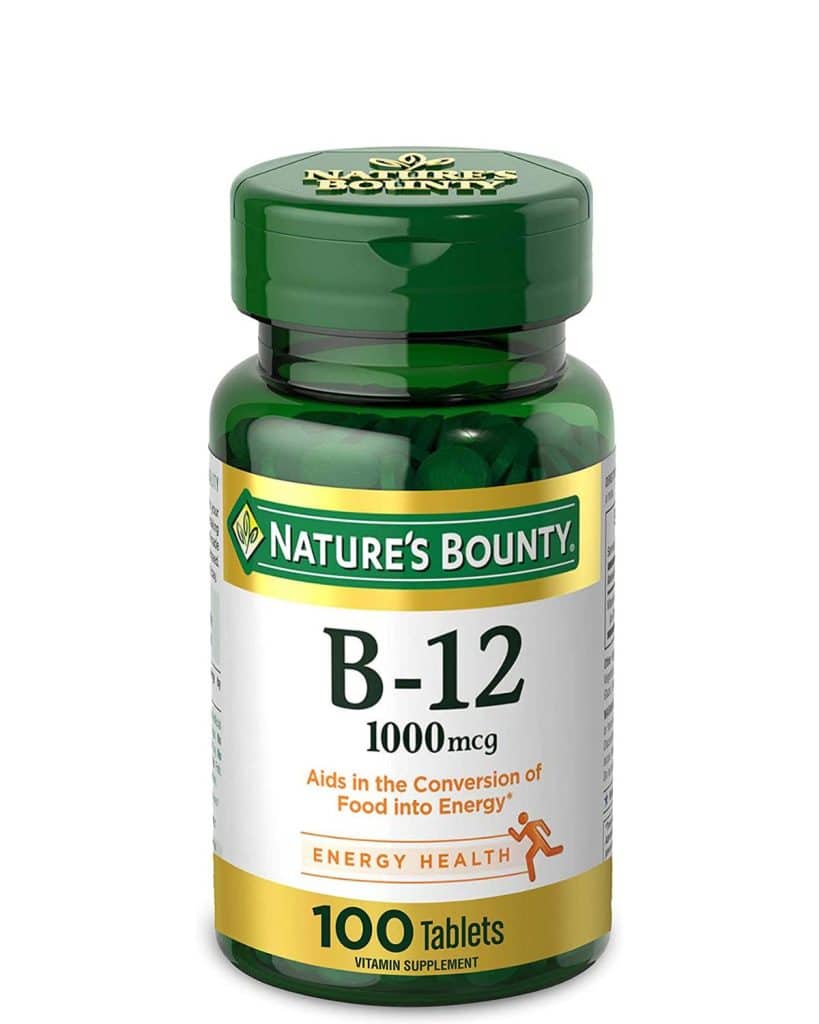
Vitamin B12 is a water-soluble vitamin crucial for the formation of red blood cells, the proper functioning of the nervous system, DNA synthesis, and the metabolism of carbohydrates, fats, and proteins.
Adequate vitamin B12 is important during pregnancy for you and your baby. It supports the healthy growth and development of the baby’s brain and nervous system. It is especially critical for pregnant women who follow vegetarian or vegan diets, as vitamin B12 is primarily found in animal-based foods.
Not only that, it was my holy grail for morning sickness or, as it was for me, all-day sickness.
So if you are struggling with pregnancy nausea, B-12 is a must-have in your supplement routine.
8. Calcium
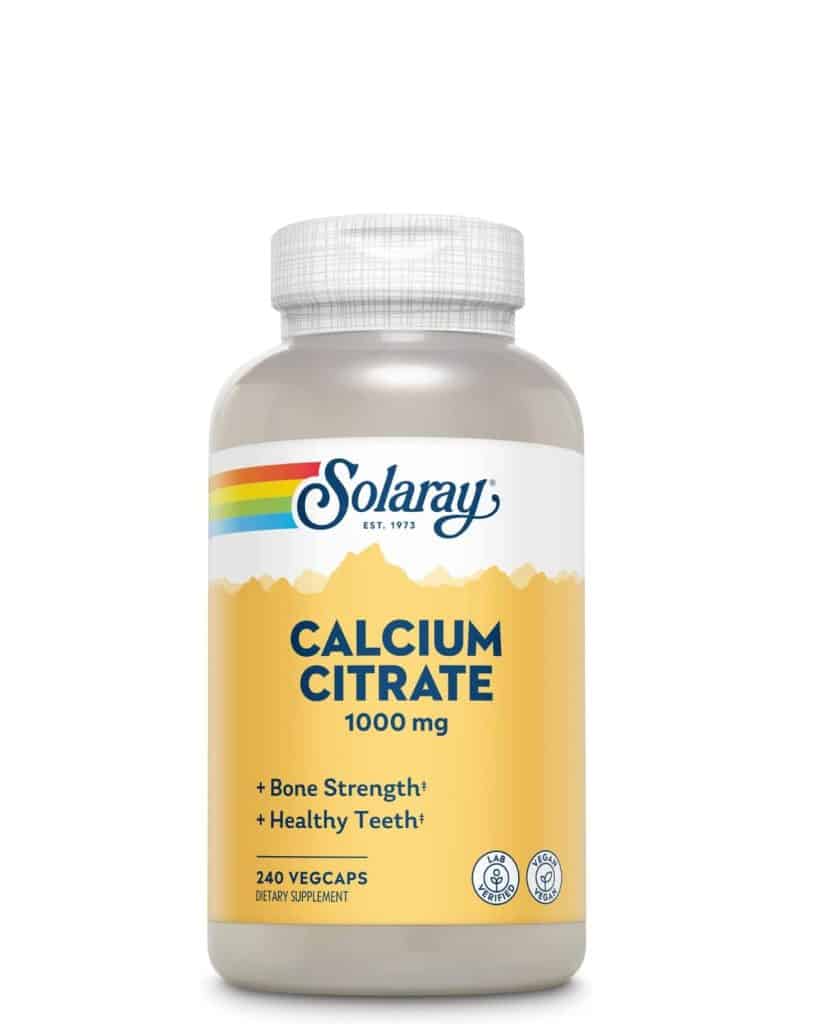
Calcium is essential in supporting the mother’s and the developing baby’s overall health and development during pregnancy. Here are some reasons why calcium is beneficial:
- Bone and teeth development: Calcium is key to building and maintaining strong bones and teeth. The baby’s skeletal system rapidly develops during pregnancy, and a sufficient supply of calcium is necessary to support this process.
- Muscle and nerve function: Calcium is involved in muscle contraction and nerve transmission. It helps regulate muscle movements, including the contraction of the uterus during labor. Adequate calcium intake ensures proper muscle and nerve function for the mother and the baby.
- Blood clotting: Calcium is essential for the normal clotting of blood. It helps form blood clots to prevent excessive bleeding during childbirth or in case of any injury.
- Enzyme function and hormone regulation: Calcium is required to activate various enzymes involved in essential bodily processes. It also plays a role in hormone regulation, helping to maintain hormonal balance during pregnancy.
- Preventing maternal calcium depletion: If your diet lacks sufficient calcium intake, your body may draw on your calcium stores to meet the growing baby’s needs. This can potentially lead to maternal calcium depletion, increasing the risk of osteoporosis or other calcium-related health issues in the long term.
Ensuring you get enough calcium will benefit your and your baby’s health and make you feel better overall.
9. Vitamin E
Vitamin E benefits the mother and the developing baby during pregnancy. Here’s why vitamin E is beneficial:
- Antioxidant properties: Vitamin E is known for its antioxidant properties, which help protect cells from damage caused by harmful molecules called free radicals. This is particularly important during pregnancy, as oxidative stress can increase due to the metabolic demands of pregnancy and the baby’s rapid growth.
- Supporting immune function: Vitamin E supports immune function by enhancing the activity of certain immune cells. This can help maintain a healthy immune system during pregnancy, reducing the risk of infections and promoting overall well-being.
- Fetal brain and nervous system development: Vitamin E plays a role in developing the baby’s brain and nervous system. It supports the growth and maturation of nerve cells and may contribute to optimal cognitive development.
- Skin health: Vitamin E is beneficial for maintaining healthy skin during pregnancy. It helps protect the skin from damage caused by environmental factors and supports skin elasticity, which can be particularly important as the belly expands during pregnancy.
- Blood circulation: Vitamin E supports healthy blood circulation by preventing the oxidation of cholesterol and reducing the risk of blood clot formation. Good circulation is essential during pregnancy to ensure adequate oxygen and nutrient supply to the mother and the baby.
Good food sources of vitamin E include nuts and seeds (such as almonds, sunflower seeds, and hazelnuts), vegetable oils (such as sunflower oil and wheat germ oil), and green leafy vegetables (such as spinach and kale).
Also, it’s a great moisturizer, and you can prick the capsule and put some on your face and hair for extra hydration!
Related Reading: 25 Best Pregnancy-Safe Body Lotions, Creams & Oils
Pregnancy Supplements for New Moms

Receiving enough specific vitamins and minerals during pregnancy is vital for your health and your baby’s.
Some essential vitamins and minerals that pregnant women should focus on include choline, vitamin D, folic acid, omega-3 fatty acids, vitamin K, and iron.
Finding the right cocktail of pregnancy supplements with these nutrients is essential in fetal development.
They can help to support the health of the mother during pregnancy.
Choline is essential for fetal brain development and can help reduce birth defects risk.
Vitamin D is essential for fetal bone development and can help to prevent complications such as preterm birth.
Folic acid can help to prevent birth defects of the brain and spine, and omega-3 fatty acids can support fetal brain and eye development.
Iron can aid in your oxygen demands and prevent anemia during your pregnancy.
If you are a first-time mom, it is vital to flood your body with the essential vitamins and minerals you need to thrive along with your baby.
Finding the proper medley of pregnancy supplements can be difficult, so I hope this list was helpful!

